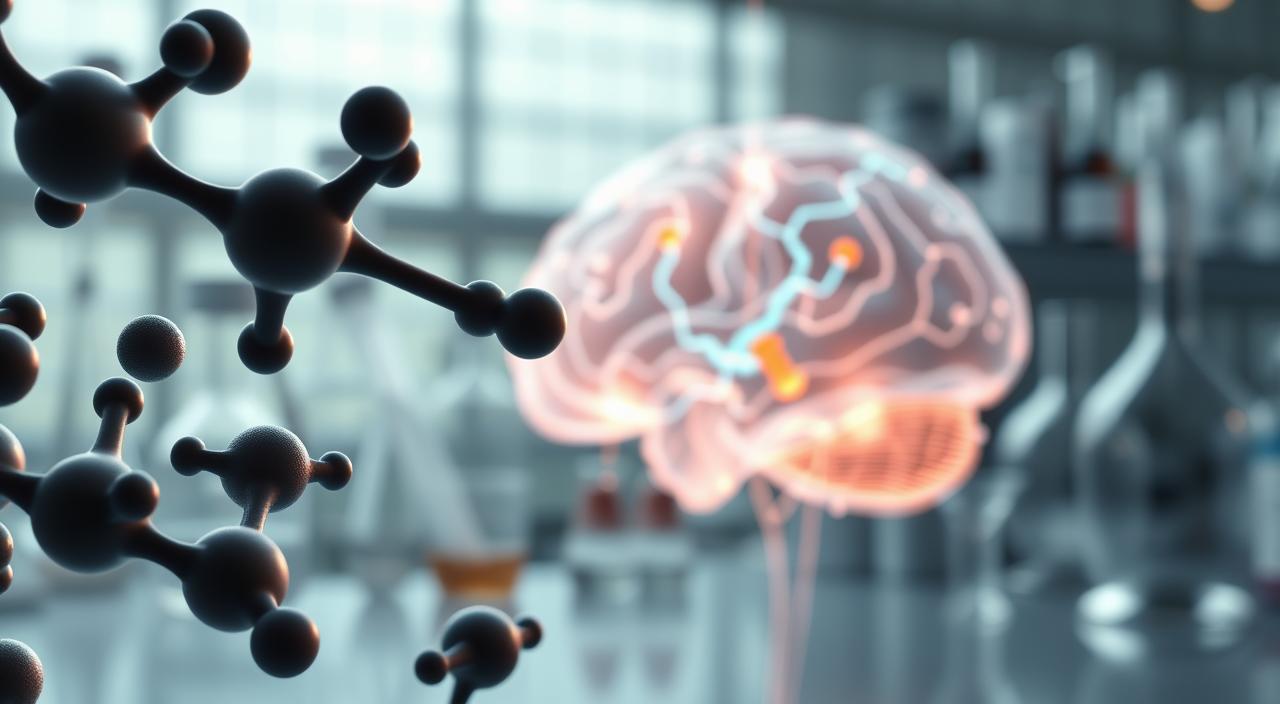Are you struggling to focus or experiencing mental fatigue? You’re not alone. Brain fog is a common condition that can significantly impact daily life. While it’s often associated with physical performance, a supplement like creatine may also have a role in enhancing cognitive function. Creatine Help for Brain Fog! Creatine supplementation!

Recent studies have shown that creatine supplementation can positively impact cognitive health, particularly in individuals experiencing mental fogginess. But what exactly is creatine, and how does it support mental clarity? As a widely used supplement among athletes, creatine is known for its ability to boost energy. Emerging research suggests its benefits extend beyond physical performance to potentially improving cognitive function.
Understanding Brain Fog and Its Impact
Brain fog is a pervasive condition that affects millions, causing confusion, forgetfulness, and a lack of focus. It is a symptom rather than a disorder itself, often indicative of an underlying issue that needs to be addressed.
What Exactly Is Brain Fog?
Brain fog refers to a state of mental confusion or lack of clarity. It can manifest as difficulty concentrating, memory problems, or a general feeling of being mentally “foggy.” This condition can significantly impact daily activities and overall quality of life.
Common Causes of Brain Fog
The causes of brain fog are varied and can include factors such as sleep deprivation, stress, certain medical conditions, and nutritional deficiencies. Identifying the underlying cause is crucial for effective management.
| Cause | Description | Impact on Cognitive Function |
|---|---|---|
| Sleep Deprivation | Lack of sufficient sleep | Impaired concentration and memory |
| Stress | Chronic or acute stress | Mental fatigue and decreased focus |
| Nutritional Deficiencies | Lack of essential nutrients | Impaired cognitive function and mental clarity |
How Brain Fog Affects Daily Life
Brain fog can have a significant impact on daily life, affecting work performance, personal relationships, and overall well-being. It can lead to decreased productivity, increased frustration, and a reduced quality of life. Understanding the causes and effects of brain fog is the first step towards managing and potentially overcoming this condition.
What Is Creatine and How Does It Work?
Creatine is a naturally occurring substance that has gained popularity as a supplement to enhance athletic performance and potentially improve cognitive function. It is an essential compound for energy production within cells, particularly in muscle and brain tissue.
Creatine supplementation has been widely used to improve athletic performance by increasing muscle creatine levels, thereby enhancing high-intensity exercise capacity. Recent studies have also explored its potential benefits for brain health and cognitive function.
The Science Behind Creatine
Creatine plays a crucial role in the phosphocreatine kinase system, which is vital for replenishing ATP stores during high-intensity activities. This process is not limited to muscle cells; it’s also relevant in the brain, where energy demand can fluctuate significantly.
Research has shown that creatine supplementation can increase brain creatine levels, potentially improving cognitive function, especially in situations where cognitive load is high or during periods of fatigue.
Traditional Uses of Creatine Supplements
Traditionally, creatine supplements have been used by athletes to enhance muscle performance and endurance. The efficacy of creatine in improving high-intensity exercise performance is well-documented, making it a popular choice among athletes.
- Enhances muscle strength and power
- Improves endurance during high-intensity activities
- Supports muscle recovery post-exercise
Creatine’s Role in Brain Energy Metabolism
The brain is a highly energetic organ, consuming a significant portion of the body’s energy expenditure. Creatine plays a vital role in maintaining ATP levels in the brain, particularly during periods of increased cognitive demand.
Studies have suggested that creatine supplementation may support brain energy metabolism, potentially leading to improved cognitive function, including better memory, focus, and mental clarity.
| Aspect | Muscle | Brain |
|---|---|---|
| Energy Demand | High during intense exercise | High during cognitive tasks |
| Creatine Role | Replenishes ATP stores | Supports ATP levels during cognitive load |
| Supplementation Benefit | Enhances performance and endurance | May improve cognitive function and clarity |
As research continues to uncover the benefits of creatine supplementation for both physical and cognitive performance, it’s becoming increasingly clear that this supplement has a broader range of applications than previously thought.
Can Creatine Help Brain Fog? The Scientific Evidence
The relationship between creatine supplementation and cognitive function has garnered significant attention in recent years. As research continues to emerge, it’s becoming increasingly clear that creatine may have a beneficial impact on brain fog and overall cognitive health.
Denticore
Healthy Teeth
DentiCore is formulated to support the proper oxygenation of the gums and tooth tissues to maintain them nourished and healthy. .
Research on Creatine and Cognitive Function
Numerous studies have investigated the effects of creatine supplementation on cognitive function, with promising results. A key study published in the journal Psychopharmacology found that creatine supplementation improved memory and cognitive performance in healthy individuals under mental stress.
Another study published in the Journal of Neuroscience Research discovered that creatine supplementation enhanced cognitive function in vegetarians, a group that typically has lower creatine levels due to their diet. These findings suggest that creatine may be particularly beneficial for individuals with lower baseline creatine levels.

Creatine’s Effects on Mental Clarity and Focus
Creatine’s potential to improve mental clarity and focus is of particular interest when considering its application for brain fog. Research has shown that creatine supplementation can enhance executive function, which includes tasks that require mental clarity and focus.
A study conducted on sleep-deprived individuals found that creatine supplementation mitigated the negative effects of sleep deprivation on cognitive performance, including attention and mental processing speed. This suggests that creatine may help improve mental clarity even in challenging conditions.
| Study | Population | Findings |
|---|---|---|
| Psychopharmacology Study | Healthy Individuals | Improved memory and cognitive performance under mental stress |
| Journal of Neuroscience Research | Vegetarians | Enhanced cognitive function |
| Sleep Deprivation Study | Sleep-Deprived Individuals | Mitigated negative effects on cognitive performance |
Limitations of Current Research
While the existing evidence is promising, it’s essential to acknowledge the limitations of current research. Many studies have small sample sizes, and there’s a need for more diverse populations to be studied.
Additionally, the optimal dosage and duration of creatine supplementation for cognitive benefits are not yet fully understood. Further research is necessary to establish standardized protocols and to explore the long-term effects of creatine supplementation on brain health.
Despite these limitations, the available evidence suggests that creatine may be a valuable supplement for individuals experiencing brain fog and cognitive decline. As research continues to evolve, we can expect to gain a deeper understanding of creatine’s potential benefits for cognitive health.
How to Use Creatine for Cognitive Benefits. Creatine Help for Brain Fog!
To harness the cognitive benefits of creatine, understanding the proper usage is crucial. Creatine supplementation has been widely studied for its athletic performance benefits, but its effects on brain health are also gaining attention. By understanding how to use creatine effectively, individuals can potentially improve their cognitive function and alleviate brain fog.
Recommended Dosage for Brain Health
The recommended dosage of creatine for cognitive benefits is typically similar to that used for athletic performance, which is around 3-5 grams per day. Some studies suggest a loading phase of 20 grams per day for the first 5-7 days to quickly saturate muscle and brain creatine stores. However, individual results may vary, and it’s essential to consult with a healthcare professional before starting any supplementation regimen.
Typical Dosage: 3-5 grams per day
Loading Phase: 20 grams per day for 5-7 days
Timing and Supplementation Strategies
The timing of creatine supplementation can impact its effectiveness. Taking creatine with a meal that includes carbohydrates and protein may enhance its absorption. Consistency is key; creatine should be taken daily to maintain saturation of creatine stores in the brain and muscles.
- Take creatine with a meal for better absorption
- Maintain a consistent daily dosage
Potential Side Effects and Precautions
While generally considered safe, creatine supplementation can cause some side effects, including stomach cramps, diarrhea, and muscle cramps. Individuals with pre-existing kidney or liver conditions should consult their healthcare provider before using creatine. It’s also important to stay hydrated to minimize potential side effects.
| Side Effect | Precaution |
|---|---|
| Stomach cramps | Take with food |
| Dehydration | Stay hydrated |
Combining Creatine with Other Cognitive Enhancers
Creatine can be combined with other cognitive enhancers such as omega-3 fatty acids, Ginkgo biloba, and Bacopa monnieri to potentially enhance its cognitive benefits. However, it’s crucial to consult with a healthcare professional before combining supplements to avoid potential interactions.

Conclusion: Is Creatine Worth Trying for Brain Fog?
Creatine supplementation has been explored for its potential cognitive benefits, particularly in alleviating brain fog. The available evidence suggests that creatine can be beneficial for cognitive function, especially in individuals experiencing brain fog.
Research indicates that creatine plays a role in brain energy metabolism, potentially enhancing mental clarity and focus. While individual results may vary, incorporating creatine into one’s regimen may be worth considering for those struggling with brain fog.
Before starting any supplementation, it is essential to consult with healthcare professionals to discuss potential benefits and risks. They can help determine the best course of action and ensure safe usage. Creatine for brain fog may be a viable option, but it’s crucial to weigh the pros and cons and make an informed decision.
As the scientific community continues to explore the effects of creatine on cognitive function, the existing evidence provides a promising foundation for its potential benefits. Whether creatine can help alleviate brain fog and improve cognitive function is a question that warrants further investigation, but the current data suggests it may be a useful supplement to consider.
See also: Creatine May Help with Alzheimer’s and Cognitive Problems. 2025!
See also: DentiCore Review: Oxygenating Support for Healthy Gums & Teeth. 2025
Denticore
Healthy Teeth
DentiCore is formulated to support the proper oxygenation of the gums and tooth tissues to maintain them nourished and healthy. .
FAQ
What is creatine, and how does it relate to brain health?
Creatine is a naturally occurring substance that plays a crucial role in energy production in the body. Research has shown that creatine supplementation can increase brain creatine levels, potentially improving cognitive function and alleviating brain fog.
Can creatine help alleviate brain fog?
Some studies suggest that creatine supplementation may help alleviate brain fog by improving cognitive function, particularly in tasks that require attention and mental processing. However, more research is needed to confirm its effectiveness.
How does creatine affect cognitive function?
Creatine supplementation has been shown to improve cognitive function by increasing brain creatine levels, which can enhance energy production and reduce fatigue. This can lead to improved mental clarity, focus, and overall cognitive performance.
What is the recommended dosage of creatine for brain health?
The recommended dosage of creatine for brain health is typically between 3-5 grams per day, taken consistently over a period of time. However, it’s essential to consult with a healthcare professional to determine the best dosage for individual needs.
Can I combine creatine with other cognitive enhancers?
Yes, creatine can be combined with other cognitive enhancers, such as omega-3 fatty acids, vitamin D, and magnesium. However, it’s crucial to consult with a healthcare professional to ensure safe and effective combinations.
Are there any potential side effects of taking creatine for brain health?
Generally, creatine is considered safe when taken as directed. However, potential side effects may include stomach cramps, diarrhea, and muscle cramps. It’s essential to consult with a healthcare professional to discuss potential risks and benefits.
How long does it take to notice the cognitive benefits of creatine?
The time it takes to notice the cognitive benefits of creatine can vary depending on individual factors, such as dosage, consistency, and overall health. Some people may notice improvements within a few weeks, while others may take longer.
Is creatine suitable for everyone, including older adults and individuals with neurological conditions?
Creatine may be beneficial for older adults and individuals with neurological conditions, such as Alzheimer’s disease and Parkinson’s disease. However, it’s crucial to consult with a healthcare professional to determine the suitability of creatine supplementation for individual needs.





1 thought on “Creatine Help for Brain Fog: Does It Work?”